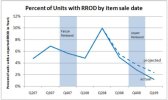Given the ecosystem inertia, it's tricky for MS, but having been around to analyze the industry for over 25 years my instinct is telling me that it's still all about the games.
I'm having a blast on my XSX, and I really do believe that MS releases six 8.5s for every three 9s that Sony gets out the door, but the fact is that when you're in 3rd place you have to do twice as well to overcome market perception and branding weaknesses.
If Halo Infinite, Starfield & Forza had all been 9s, instead of 8.5s, and must have titles then they might have attracted more attention from PS gamers.
MS has to use those 40 studios to make PS gamers jealous enough to say: "I need an Xbox/PC too."
They need Hellblade, Fable, Doom, Avowed, Gears, etc... [insert gazillion IPs] to be 9/10 must have games. They need to be relentlessly releasing AAA game after AAA game so that Sony fans are cursing the heavens because they are forced to buy an Xbox/PC to play them. 40 studios/5 year dev cycles = 8 AAA games per year, give or take, minus multiplatform CoD and some longer dev cycle games like Elder Scrolls and let's call it 6 AAA games a year.
That and a $400 X and $200 S are what's needed to turn things around in NA & UK. Then they can start promoting like crazy in France and Germany, when they have something to truly promote. Who knows, maybe even Estonia one day....
As for new hardware? 2025 seems good to me. Always a year after Sony with better specs. Then devs build for Sony, but it doesn't matter as the ports run better on MS new machine. Nothing amazing will happen in the one year anyway as dev times are too long.


